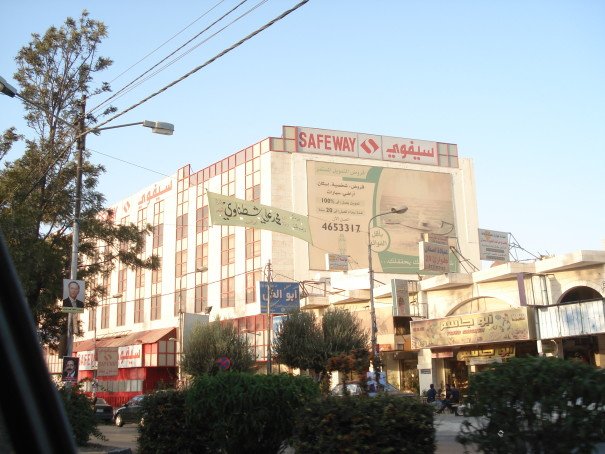
A Slice of Heaven’s Garden and Bad Coffee

A Slice of Heaven’s Garden and Bad Coffee
Harisa in Irbid
It was a late night in June of 2010 when I arrived in Irbid, Jordan, the country’s second-largest city, which sits just south of the Syrian border. The air was warm and heavy with the scent of sand, citrus, cardamom, and cigarette smoke. Scents that on following trips caused a flood of memories and comfort, but on this first foray out of the United States was so very foreign.
Soon, Irbid turned familiar, thanks in large part to a Nescafe stand and a friendly baker. Every morning at 7am I would walk a mile to Irbid University, taking in the hazy sunrise, chaotic traffic, and intense heat, even in the early morning.
There were about a dozen Nescafe stands on that walk, but I always stopped at the one just outside my apartment, where a man named Muhammad served steaming paper cups of instant coffee flavored with cardamom. I would stand, sipping a cup, half asleep, while Muhammad drilled me on Arabic phrases, correcting my pronunciation over and over until he deemed it acceptable. Then he would hand over a second cup for the road.
Though I grew used to the bitter, weak coffee, saved only by the aromatic cardamom, I remained bewildered by Nescafe’s popularity throughout Jordan. Instant coffee accounts for more than 40 percent of coffee in the Middle East, compared to barely 10 percent in North America. Nescafe stands dot the streets of Jordan, lighting up in the night and even popping up along major highways. I tried to find out why, receiving answers from “It’s the best, no?” to “who knows why we do anything, but it’s delicious,” and most often, “we love our Nescafe as much as we love our hummus.” End of story, and after a few months I loved it, too.
A crumbled strip of sidewalk and a hectic roundabout later I arrived at Alahandra Sweets, where Ahmad, a talkative older man with a limp and a toothy grin, would be waiting with a slice of harisa. The dense, sweet semolina and honey cake drenches napkins with its sugary moisture. It looks almost too sweet, but the addition of geranium gives it a floral, lighter flavor as it dissolves in your mouth. Hala, Ahmad’s sister, once called it “a slice of heaven’s garden.” Her laugh filled the little shop, echoing as she wove her way through the trays of kunafa and spinning shelves of baklava, working efficiently to serve the morning rush. Meanwhile, Ahmad offered tea and told me about his time in Alabama, which he adored—”They call it sweet home for a reason, yes?”—and about how he wished he had children. Hala would stop her rushing to present a bowl of pistachios, or maybe dates or oranges, depending on the day.
Hospitality is a hallmark of Jordanian culture, drawn from the traditions of the nomadic Bedouin group, which prizes karam, or generosity, as one of man’s most honorable virtues. It is not uncommon for foreigners to hear “welcome to Jordan” again and again, shouted from cars or storefronts, or to be invited into someone’s home for tea, even if they’ve just met. The warmth will surprise you, then pull you in.
On my last day in Irbid, Muhammad gave me strict instructions to practice Arabic every day, and Ahmad and Hala smothered me with hugs and pushed a box of sweets into my hands.
Though Jordan is filled with wonders from the ancient city of Petra to the Roman Ruins at Jerash, the strangeness of floating in the Dead Sea and the glorious night sky at Wadi Rum, it’s these three people, and these two breakfast rituals on a not very special street in an often overlooked city, that have remained in my mind.